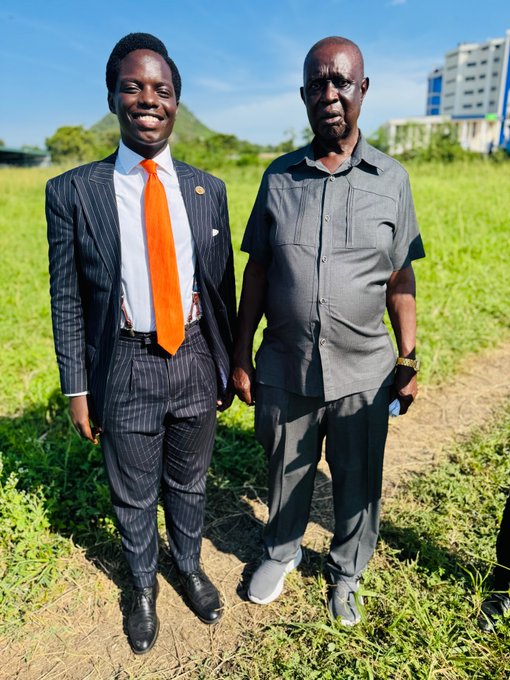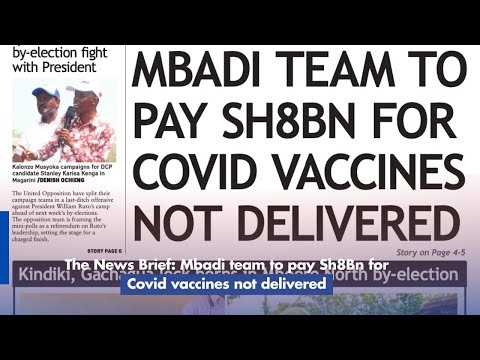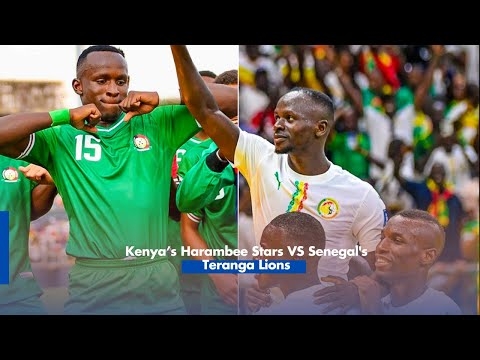
 ODM youth leader Kasmuel McOure with party leader Senator Oburu Odinga./COURTERSY
ODM youth leader Kasmuel McOure with party leader Senator Oburu Odinga./COURTERSY
ODM youth member Kasmuel McOure has launched a strong defence of Dr. Oburu Oginga’s leadership, warning that attacks against him are direct attacks on the late Raila Odinga’s judgment and the party structures he carefully built over the years.
In a statement released on Tuesday, McOure said Oburu’s confirmation as ODM party leader was the culmination of decisions Raila made to secure the party’s future, and that his leadership should not be questioned.
McOure said a new faction within ODM, which he described as comprising “cunning legislators and influential actors,” was investing heavily in attempts to manufacture an alternative power centre and erase Oburu’s authority.
He insisted that no such effort would be recognised by loyal party members.
“Every decision Baba made regarding the future of ODM led to Dr. Oburu’s confirmation as party leader. He remains our leader, and we shall defend him as fiercely as we defended His Excellency Raila Odinga,” McOure said.
“No amount of money, bullying, or cynical invocation of ‘reform’ will move us.”
Mcoure's sentiments came in days after EALA MP Winnie Odinga stormed into the heart of Kenya’s national political conversation, capturing attention with fiery speeches and bold accusations.
Winnie’s recent remarks in Mombasa appeared to have unsettled and energized the Orange Democratic Movement (ODM). Her remarks during the ODM@20 celebrations on Friday provoked intense debate and drew sharp reactions across the political divide.
Winnie, the youngest daughter of the late former Prime Minister Raila Odinga, stood before supporters and party leaders and unleashed a critique of what she sees as creeping betrayal within the ODM ranks.
She claimed that a section of ODM leaders were holding secret meetings “in boardrooms and bedrooms” to negotiate the party’s future and possibly “sell ODM” at a time when it remains divided over whether to continue its cooperation with President William Ruto’s administration or adopt a bolder, independent stance ahead of the 2027 general elections.
“ODM is not a party that was secretly birthed,” she declared defiantly.
“Some of us are walking with us during the day, but at night are hatching plans to sell our party. That will not be possible. The party was not born in a boardroom. It was not made in a bedroom, and its future will not be discussed as pillow talk. It was born out of protest, made in resistance, and the people of ODM have bled time and again and shed tears for this country.”
Dr. Oburu, Raila’s elder brother, sought to cool rising temperatures following Winnie’s call for the convening of a National Delegates Conference (NDC) to redefine ODM’s relationship with the government.
Oburu diplomatically dismissed her proposal in public but noted that he would hold a private discussion with her to address the issues she raised.
This measured response reflected the delicate balancing act ODM leaders now face: showing respect to Raila’s daughter while maintaining control of a party struggling to navigate a post-Raila reality.
Dr. Oburu, a veteran politician, has been a central figure in ODM since its formation in 2005. With a long career that includes serving as Assistant Minister for Finance, Member of Parliament for Bondo, and a stint in the East African Legislative Assembly, Oburu has been part of the party’s inner power structure for decades.
Following Raila’s death in 2025, ODM’s National Executive Committee appointed Oburu as acting leader, a decision later ratified by the National Governing Council in Mombasa on November 14.
McOure credited Oburu with maintaining stability within ODM at a time when tensions rose after Raila’s death. He said the party leader’s steady hand prevented mass defections and helped maintain inclusivity when some members were issuing ultimatums and plotting new political paths.
“Let it not be forgotten that it is his wisdom that has preserved some of you within the ODM fold. His judgment kept the house intact,” he said.
ODM has recently experienced internal friction as competing factions seek to shape the party’s post-Raila future.
Analysts say the emergence of rival centres of power is largely driven by succession politics and shifting national alliances, especially as the party reassesses its role in Kenya’s evolving political landscape.
Oburu’s leadership, backed by key party organs, has been presented as a continuation of Raila’s legacy and an effort to keep ODM united as one of Kenya’s most influential political movements.
In his statement, McOure urged party members—regardless of rank or proximity to political influence—to respect the established hierarchy and allow Oburu to execute the mandate entrusted to him. He said the discipline that built ODM must be upheld if the party is to remain strong and secure its future.
“On matters Chungwa, focus on your work and allow our party leader to execute his mandate. That discipline is what built this movement, and it is what will secure its future,” McOure said.
His remarks come as ODM prepares for key upcoming organisational activities, including strengthening grassroots structures and preparing for national engagements expected to shape the party’s direction over the next electoral cycle.
McOure’s message was unequivocal: Oburu Oginga is the legitimate heir to Raila Odinga’s political legacy, and any attempts to undermine him will be met with firm resistance from within the party.



















